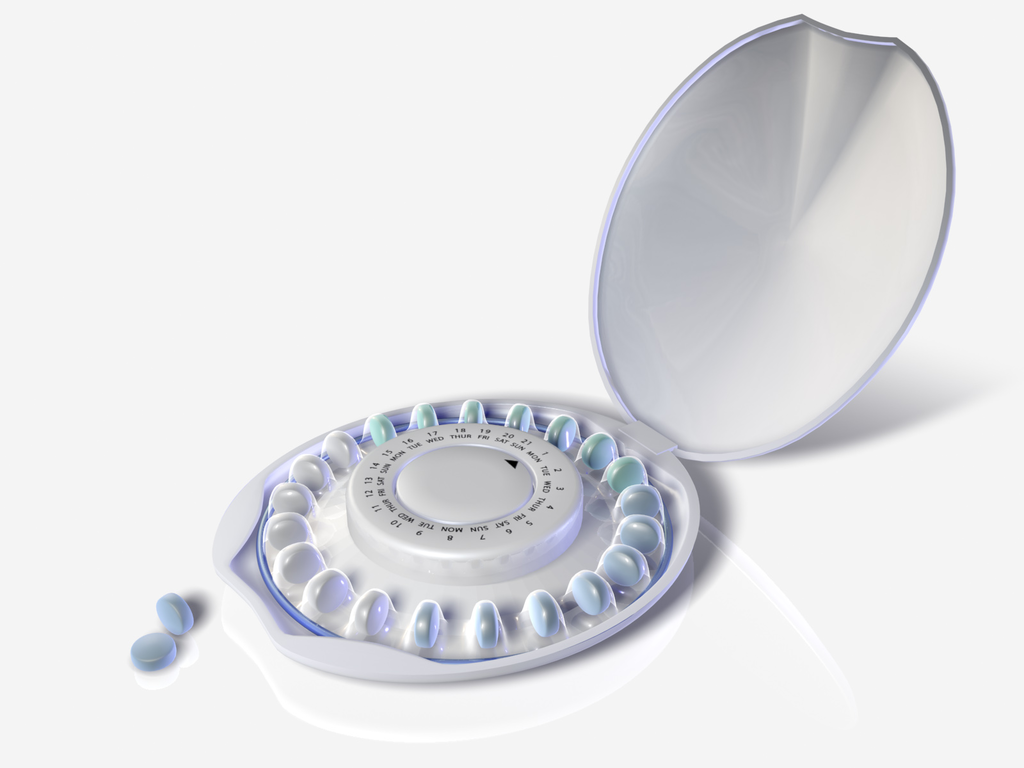Here Are the Most Common Things People Get Wrong About Using Birth Control

By:
According to the CDC, around 62 percent of women of reproductive age are currently using some form of contraception and 99 percent of women have used a form of contraception at some point in their lives. Given the amount of women that have taken or are currently taking birth control, one would think that information about birth control and the risks of taking it are common knowledge, but they’re not.
 Wikimedia Commons / BruceBlaus - wikimedia.org
Wikimedia Commons / BruceBlaus - wikimedia.org
False information about contraception can lead to incorrect use, or deter women from using birth control in the first place, which puts women at risk of unwanted pregnancies. Unfortunately, due to the stigma surrounding birth control, many women and girls do not seek out information from credible sources and, as a result, misconceptions persist.
Here are some of the most common misconceptions about birth control:
Long-term use of birth control can affect fertility.
Many women are afraid to take the pill because they have heard that extended use can impact their fertility down the road. But reliable sources say otherwise. Per the New York Times, "once women stop taking oral contraceptives they usually regain fertility within 3 - 6 months, but some women may regain it even sooner." The same Times report states that "studies have found no adverse effects on fertility with the current IUDs."
Some doctors have even argued that taking birth control can improve long-term fertility. Fernando Gomez, M.D. of the Reproductive Medicine Institute in Orlando, Florida told FertilityAuthority.com that “since birth control pills inhibit ovulation, some studies have suggested that the use of birth control pills may have a positive effect on preserving women’s ovarian reserve, the number of eggs available for ovulation.”
Birth control can make you gain weight.
In 2011, the Anahad O'Conner wrote for the New York Times that "most studies have found that those concerns are unwarranted. And women who do end up gaining weight, experts say, may simply be misperceiving normal weight gain over time as an unwanted side effect of contraceptives."
O'Conner cited research published in the Cochrane Database of Systematic Reviews, which compared women who took various types of contraceptives to those who took a placebo. The results? Women who use a contraceptive didn't gain any more weight with those who didn't.
However, as Women's Health Notes, a 2009 study published in American Journal of Obstetrics and Gynecology found "found that women using the Depo-Provera shot gained an average of 11 pounds and increased their body fat by 3.4 percent over three years." It's important to note, though, that it's not known if the so-called "birth control shot" was responsible for the weight gain.
You need to take a break from birth control every so often.
Many women still believe that since there are hormones in contraceptives, they need to take a break every so often to let their hormone levels regulate.
This isn't necessarily the case. Dawn Stacey, PhD, LMHC told VeryWell in 2014:
Experts say the pill can be taken for 15 or more years consecutively without any increased risk. However, doctors do advise reviewing contraceptive needs after 15 years of using the pill or at age of 35.
It is recommend that women take a break from using the Depo-Provera shot, because long term use can lead to done-density loss, according the New York Times:
Long-term (more than 2 years) use of Depo-Provera can cause loss of bone density. Depo-Provera’s label warns that the decline in bone density increases with duration of use and may not be completely reversible even after the drug is discontinued. The FDA recommends that Depo-Provera should not be used for longer than 2 years unless other birth control methods are inadequate.
Only women can take birth control.
This one’s a doozy. Although women are the ones that give birth, that doesn't mean that women should be the ones solely in charge of birth control. It takes two to tango, and it should take two to regulate contraceptives.
According to Planned Parenthood, condoms are 98 percent effective in preventing pregnancy when used properly, and they prevent STIs (which birth control does not). So, if you want to be extra effective, condoms should be used in addition to hormonal birth control methods.
